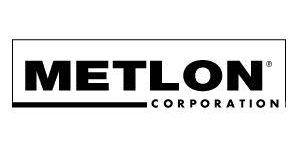|
By Bernadette Doran By any measure, on-the-job stress levels in corporate America have never been higher. In continuing efforts to regain pre-Sept. 11, 2001, economic security and professional success, Americans now work more hours than employees in any other country an average of 1,800 hours a year per person. The husband and wife in a typical two-income household now work 500 more hours a year than they did in 1980, which is 20 more days or a half a years worth of Saturdays. In the wake of Sept. 11, 2001, almost 85 percent of Fortune 500 companies downsized, and the employees who remain get more and more work. An August 2005 study by Kronos Inc. found that 43 percent of all employed adults have had an increase in their workload, and almost three-fourths have added as much as 9 hours to their workweek more than what used to be one full day of work. And thats just in the previous six months. The more hours people work, the more stressed people become, and theyre paying for it with their health. Stress now has been linked to as much as 90 percent of all acute and chronic health problems, including cardiovascular problems, obesity and diabetes. The cost goes straight to the companys bottom line. The price tag for workplace stress measured in health care costs, absenteeism, lower productivity and on-the-job mistakes now costs the nation more than $300 billion a year. How does the uniform industry fit into this national trend? Has it become increasingly stressed for success, just like the rest of corporate America? The answer is an overwhelmed, and overwhelming, yes, according to industry leaders. Over the last few years, the uniform industry has felt mounting pressure from stepped-up competition, fallout from the Sept. 11, 2001, attacks and other national disasters, offshore manufacturing problems, global trade laws and increased expectations among customers generated by Internet hyper-efficiency. As a result, stress in the industry is higher than ever. Both management and staff are feeling it for different reasons, says Gary Schultz, president and COO of manufacturer Edwards Garment. The general workers know expectations of them are higher now. We told our employees were in a race; we have to run faster just to keep even and stay competitive. The executives feel it. We have to make decisions that will have a positive influence on our companys success. The pressure that began after the devastation of the Twin Towers has never let up. Im a firm believer that since 9/11, this world has changed says Bill Darah, CEO of retailer Superior Uniform Sales. Our customers had budget cuts, and the country definitely went into a recession. Our business was off in 2002, and were still climbing back up to 2001-2002 levels. Natural disasters have hurt the industry further, says Harvey Klein, one of the family owners of retailer Red the Uniform Tailor. Because we sell into the hospitality industry, we took a big hit after 9/11. There were no tourists, says Klein. Then, this year, we lost 11 customers because of hurricanes Rita and Katrina. In addition to no future business from them, we now have outstanding debt that may not be collectible. Thats very stressful. Klein has seen a shift in the type of uniform the customer is buying in the post-Sept. 11, 2001, world a change that has increased financial pressures. We specialize in high-end, Class-A uniforms dress shirts, for example. But now were selling a lot more of our Class-C uniforms replacing those Class-A purchases, so the value of the sale is much lower. Before, wed sell three pairs of pants for $250; now were selling three pairs for $135. We have to move twice the volume now to make the same profit. But our gross dollars are up this year. Americas standard corporate response to the downward economic spiral downsizing has also affected the uniform industry. Weve lost business because some of our customers have laid off people, says Bill Darah, CEO of Superior Uniform Sales. Weve had Ford Motor Company as a client for 20 years, but now they laid off their Ford-employed security staff. We lost that whole chunk of business. As a result, Darah felt he needed to make a few cutbacks too. Weve reduced our force and are asking our people to take on more. Everyone has picked up some additional responsibilities, so that poses more pressure. But our business is still off a bit, so theres a happy medium at the moment, he says. Where employees feel the stress the most is in trying to beat the clock, especially with a leaner staff, says Darah. Were a high-performing company in this industry, we rank up at the top. In order to do that, its all about service and response time, and that can be stressful. We have the right people in the right positions who handle the workload, but we are all still working hard. More than ever, Darah says, keeping a single focus among all employees, from top to bottom, is critical to success. We act as a team. Which road do we take together? If we scatter our efforts, itll hurt us, says Darah. Second on the list of major stressors, right behind the ripple effects of the Sept. 11 attacks, is a new level of competition in the uniform industry. The number of competitors has increased and price points are lower. That puts financial pressure on us because margins are down, says Schultz. Its become a much more competitive market, agrees Klein. Theres more pressure on pricing, more pressure from accountants. We work very hard in managing costs as percentage of sales, and we work harder now to create our margins. Darah agrees, noting that the industry has seen increasing buyouts and conglomeration. Theres more and more competition, he says. Were small businessmen in this industry, and were also competing against the giants. A lot of stress comes from where you get things made, to try and get the best price, says Schultz. Six to ten years ago, we started going offshore to get garments made, but it was only a very small portion of our product line. Now competitive pricing demands that you have to go offshore for most items. Klein agrees, but points out another stress point with offshore purchasing. The customer knows you pay less for it, so they want to pay less for the garments. They expect a trickle-down effect. A lot of products are made offshore now, especially police uniforms, he says. Offshore manufacturing can create stressful uncertainty about the quality of the product as well. Youre dealing with people further away, people from different cultures, Schultz says. You put an order in today, and you dont see your stuff for several months. Thats made our business very complicated. Plus, different countries have different ethics, values and standards, and that can make things very difficult too. Finding the right people to work with offshore is challenging. We have people weve worked with for several years, but were always making other site visits, says Schultz, adding that quota restrictions on imports from China complicate matters further. Trade and global politics affect us the most. You worry about the political stability of places like Pakistan and Bangladesh. If conditions on the other side of the world are creating stress, add to that the conditioning of cyberspace. The Internet has forever changed the way America does business. Its affected some members of the uniform industry for the better. For example, Red the Uniform Tailor is now making many more sales via its website than ever before. But by boosting customer expectations, doing web-based business has increased workplace stress for many. Because of the Internet, people are used to transactions happening very quickly and businesses being open 24 hours a day, Schultz says. In response to these new customer expectations and to become more competitive, in fall of 2004 Schultz stretched customer service and shipping at Edwards Garment to 7 p.m. Were in the Eastern time zone, so our customers on the West Coast can now place an order with us and have it shipped the same day. Our extended hours also mean were able to accommodate more East Coast orders placed later in the day. Schultz says clients appreciate faster shipment because it saves them or their customers money. Our clients are often on tight turnaround for their customers, and if we can ship faster, they can skip paying higher next-day delivery charges. But extending hours meant that Schultz had the extra stress of reconfiguring the employee workload. He developed a combination in which some people work four 10-hour shifts and others work staggered shifts, all on a volunteer basis. For the first time, Schultz brought in some part-timers who come in mid-afternoon and leave at 7 p.m. The part-timers are working out so well, hes thinking about adding more. How executives help their employees handle stress is crucial, and some industry members have been innovative in their management practices. At Superior Uniform Sales, Darah made chair massages available to the staff at a cost shared by management and the employee. He also makes sure people get extra time off if they need it for personal reasons. Edwards Garment has an employee assistance program, where staff can get help for any reason, from personal stress and health issues to counseling during a divorce or other life crisis. Weight Watchers is also available to employees. Says Schultz, We encourage employees and executives to take care of themselves as much as possible with these programs. Good training and self-pacing keep employees calm and confident at Red the Uniform Tailor. We spend a lot of time on training, says Klein. We hire people, we train them well, they do their job, and we leave them alone. If you pressure employees to do more or faster work, its no good. Wed rather have them be as effective as they can be at their own pace. What about executives handling their own stress? My job is to guide the company and make sure it prospers. Given the increasing uncertainties, how do you do that? asks Schultz. Were privately owned, and I feel personal responsibility to all our employees and their well being. Among industry executives, physical breaks and sports activities from handball and golf to working out at the gym as many days a week as possible topped the list of stress busters. But Schultz has another solution as well. Stress comes from lack of knowledge and fear of the unknown, he says. So Ive tried as much as possible to be an information sponge. I enjoy reading things, keeping up, being aware. Knowledge is a good thing. The more you know, the less stressed you are. Darah agrees. My philosophy is, Monday morning I have to be current. Im a seven-day-a-week person. I do whatever I need to do over the weekend to get current. Darah has another, perhaps even more important, stress-busting technique: Always stay mindful of the true purpose of his efforts. He says, Yes, theres stress. But this industry offers a lot of satisfaction great customers who appreciate the hard work we do for them. Bernadette Doran is founder of Industrial Strength Soul, a company that provides on-site corporate stress management workshops and other leadership support services. Her website is www.industrialstrengthsoul.com. |
|
| Above story first appeared in MADE TO MEASURE Magazine, Spring & Summer 2006 issue. All rights reserved. Photos appear by special permission. | |
|
Halper Publishing Company |
|











